According to UNFPA, an estimated 500 million women and girls globally lack access to affordable and safe menstrual products. In Nigeria alone, approximately 37 million women and girls face this challenge. Beyond limited access, many lack proper sanitation, accurate information, and supportive environments. Stigma, misinformation, and high costs often force women and girls to resort to unsafe or low-quality alternatives. (UNFPA Nigeria)
The Role of Reusable Pads
Reusable menstrual pads, when produced and used correctly, provide a sustainable, cost-effective, and environmentally friendly alternative to disposables. They significantly reduce waste, offer long-term usability, and can be locally manufactured, creating livelihood opportunity, especially for women and youth. UNFPA’s published technical standards for reusable pads further ensure safety, quality, and effectiveness in production.
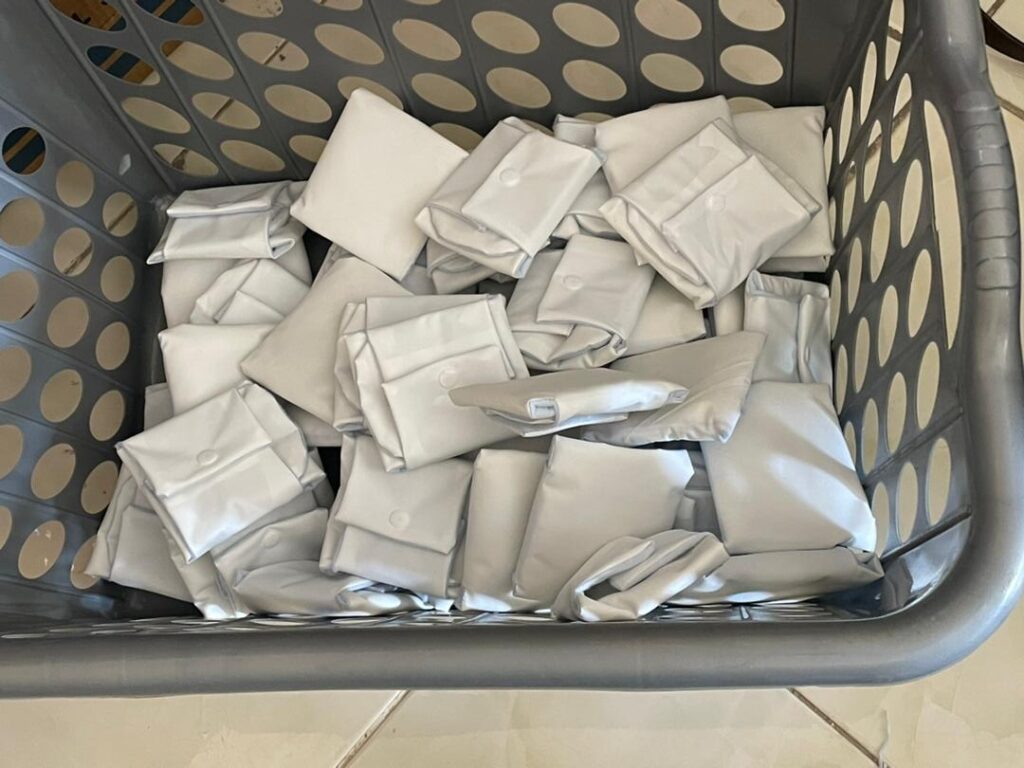
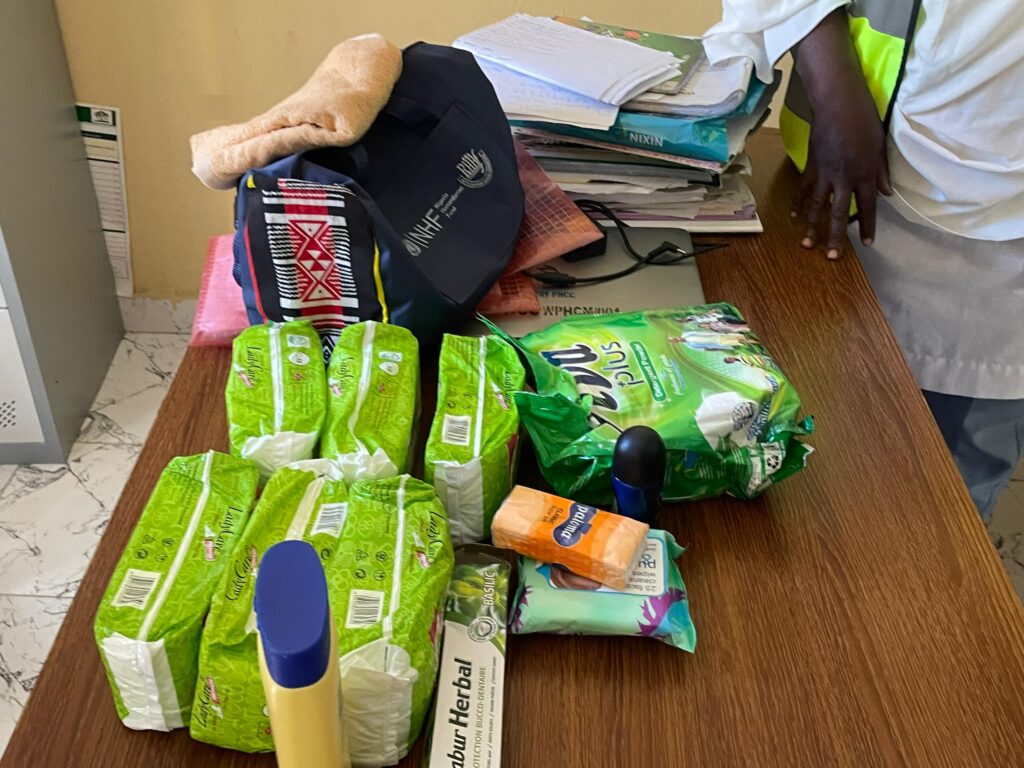
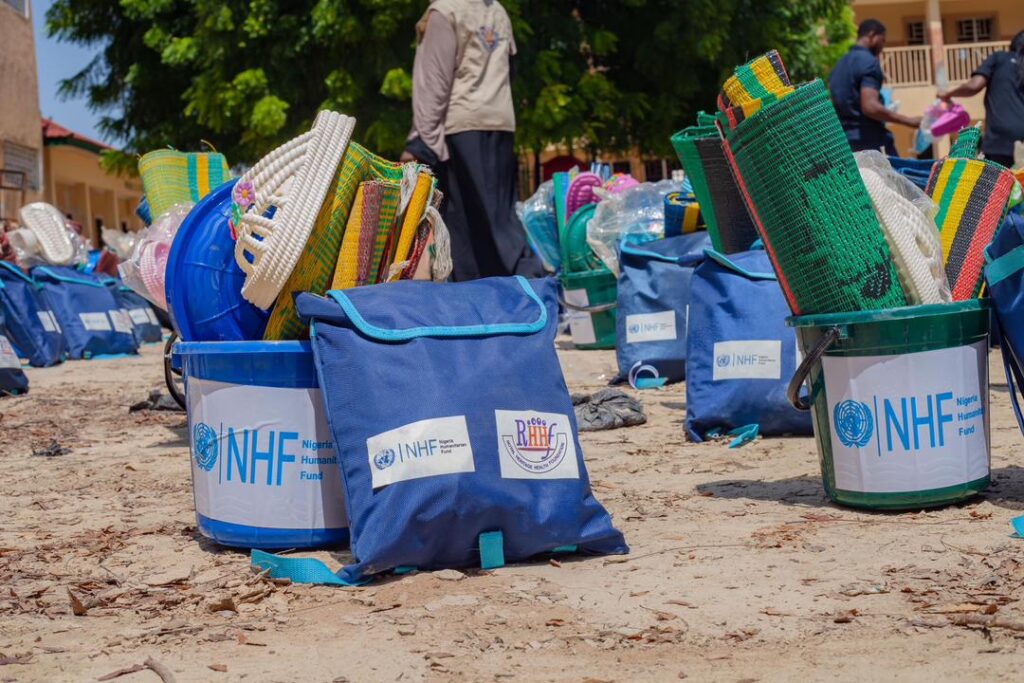
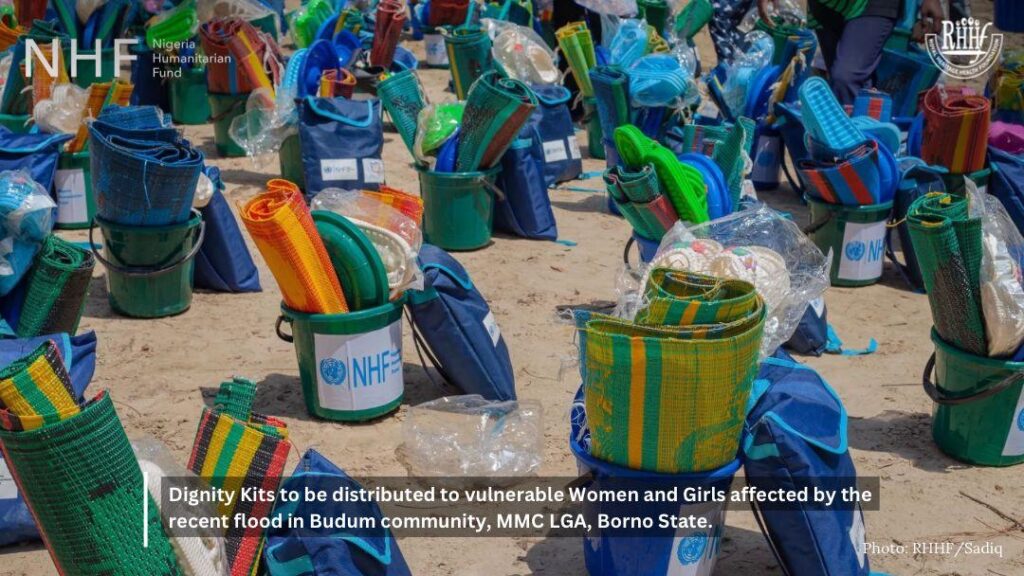
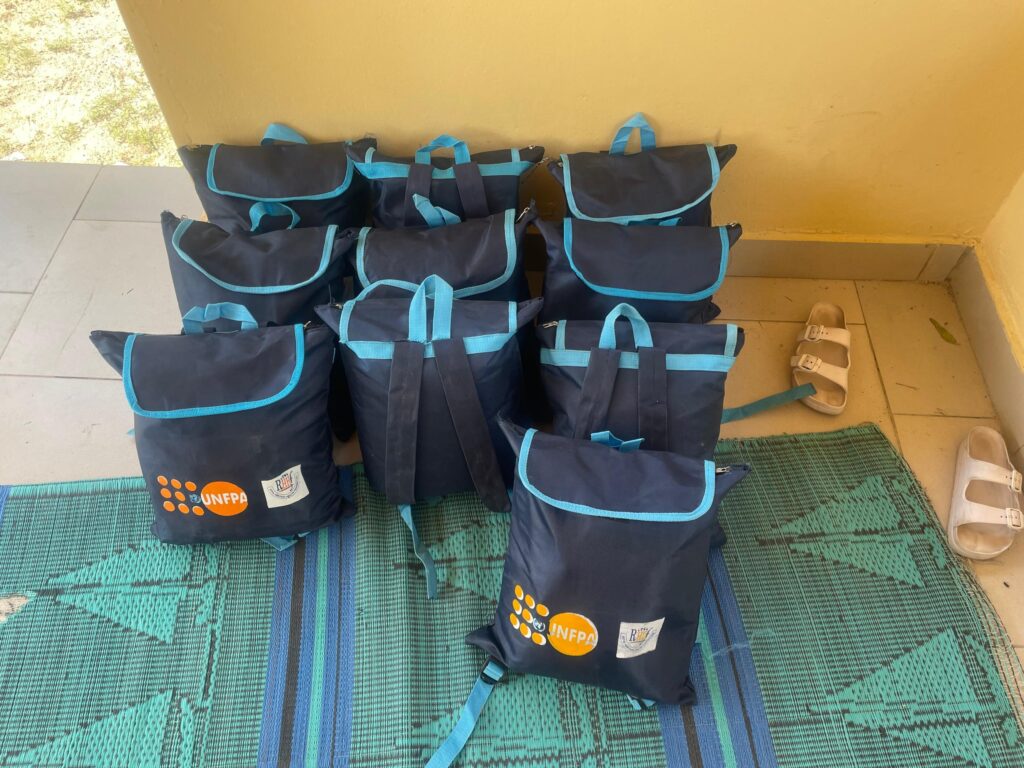
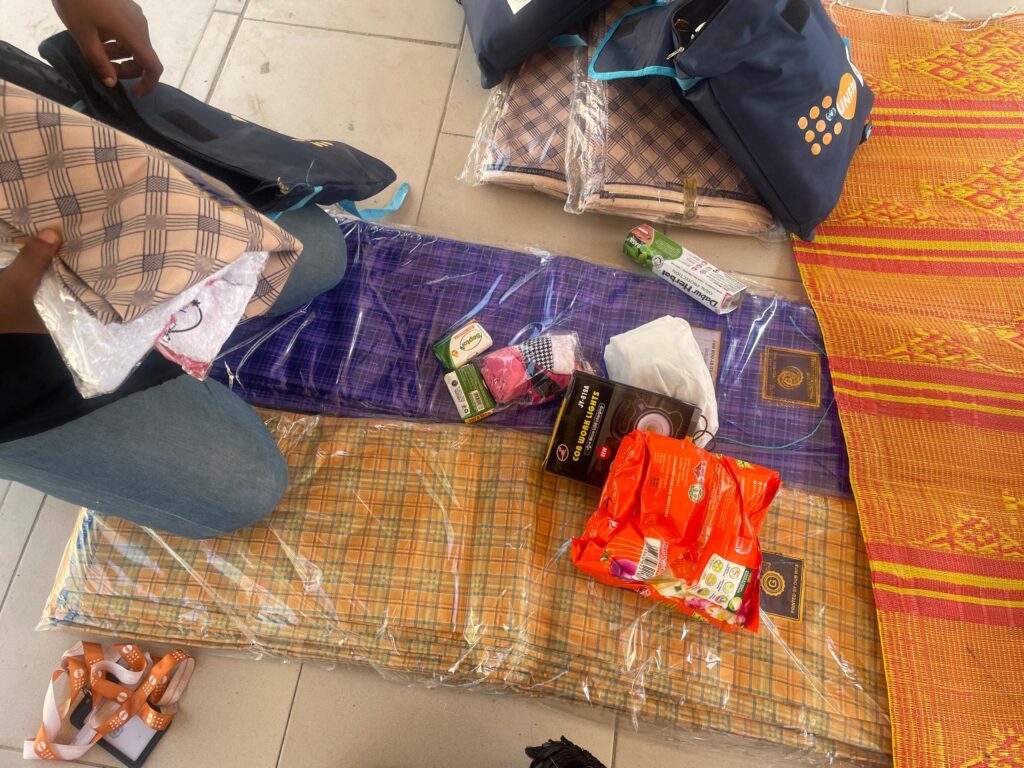
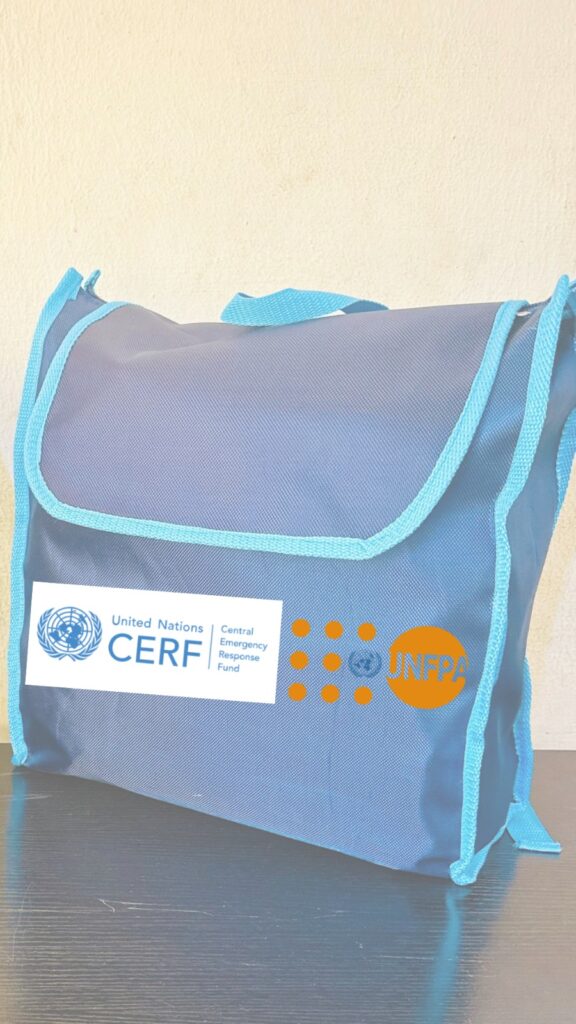
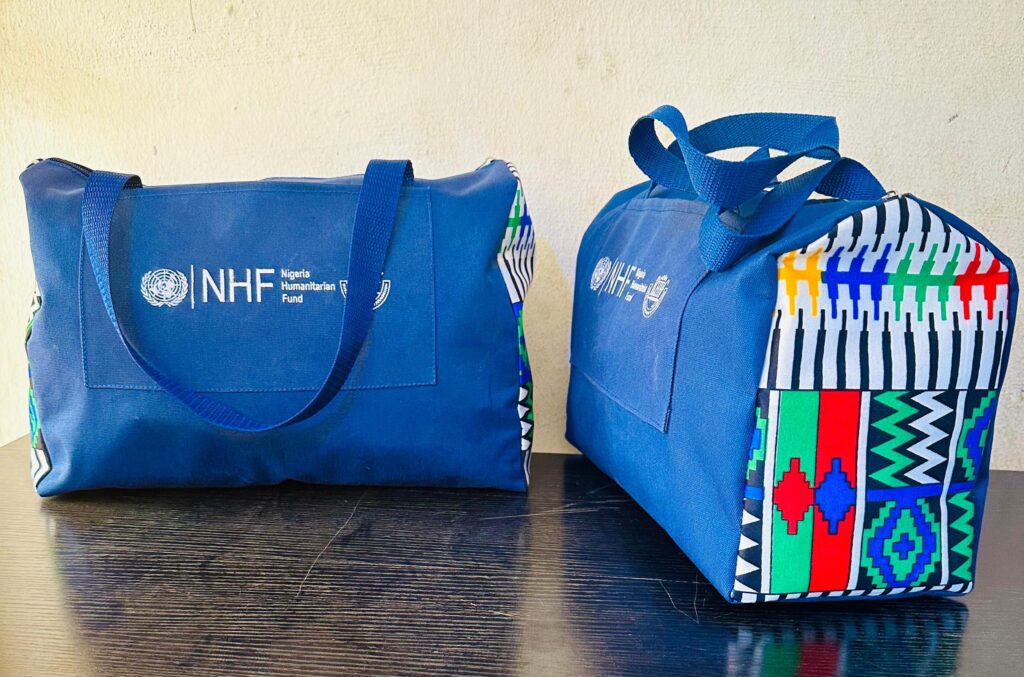
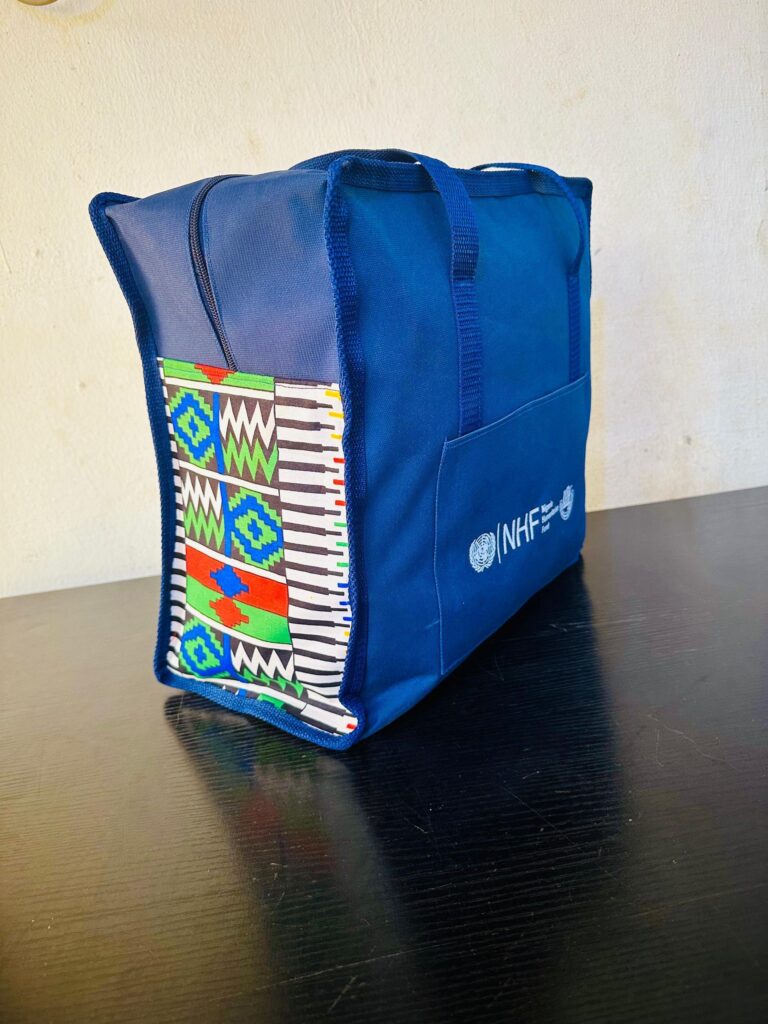
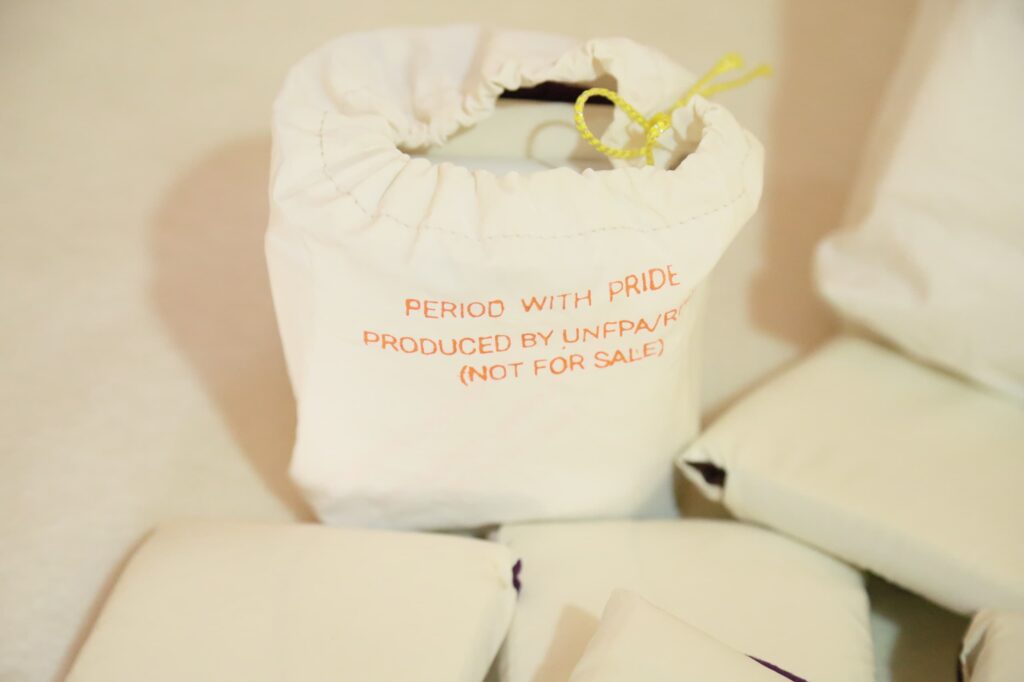
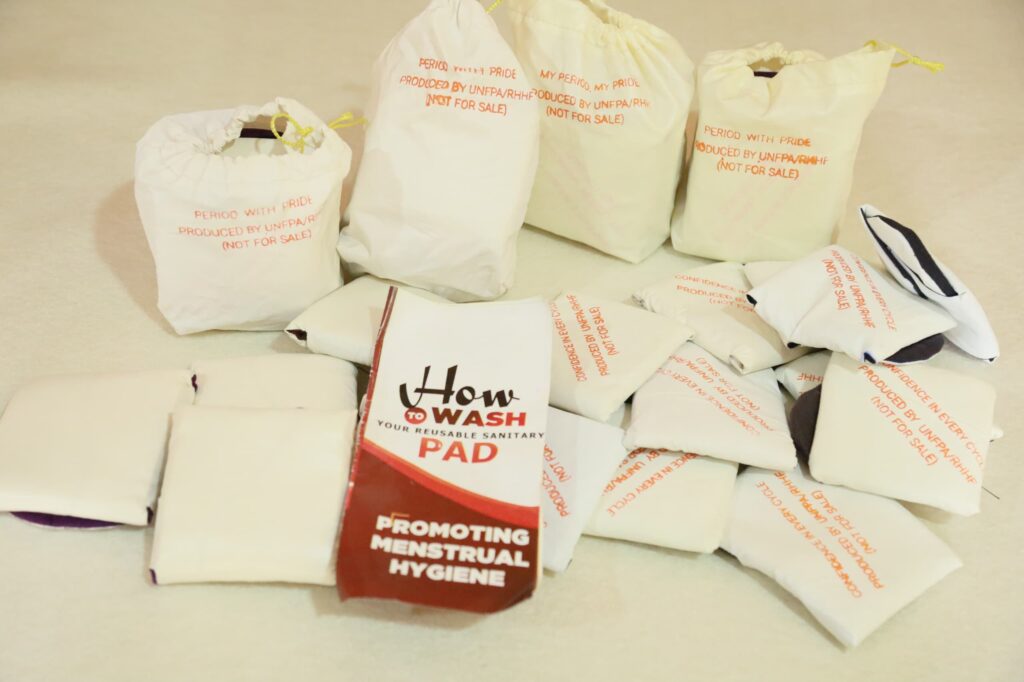
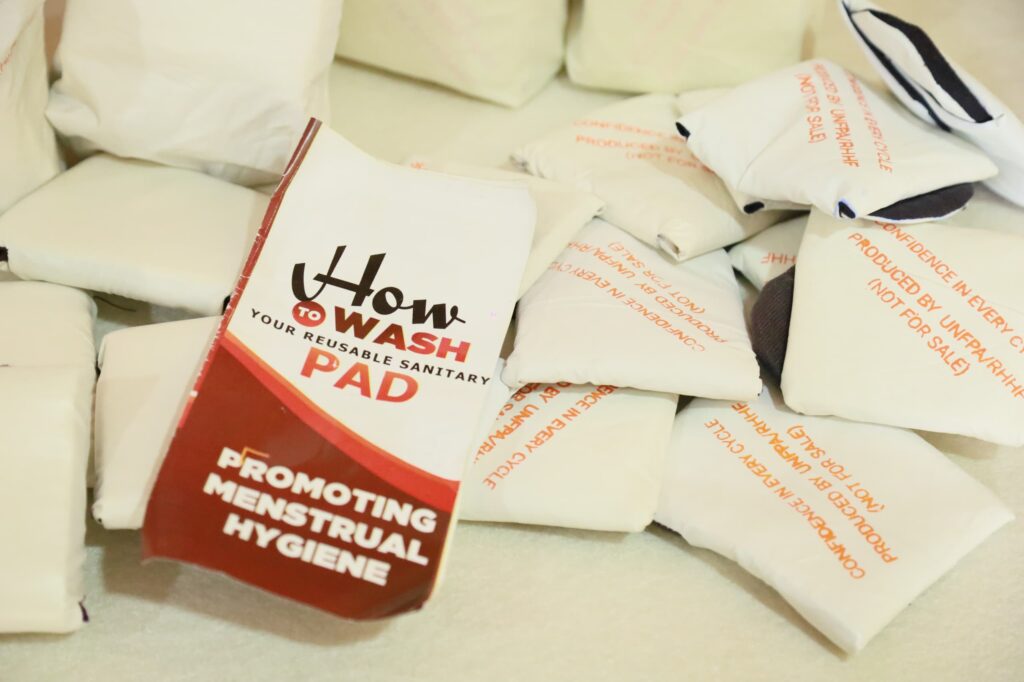
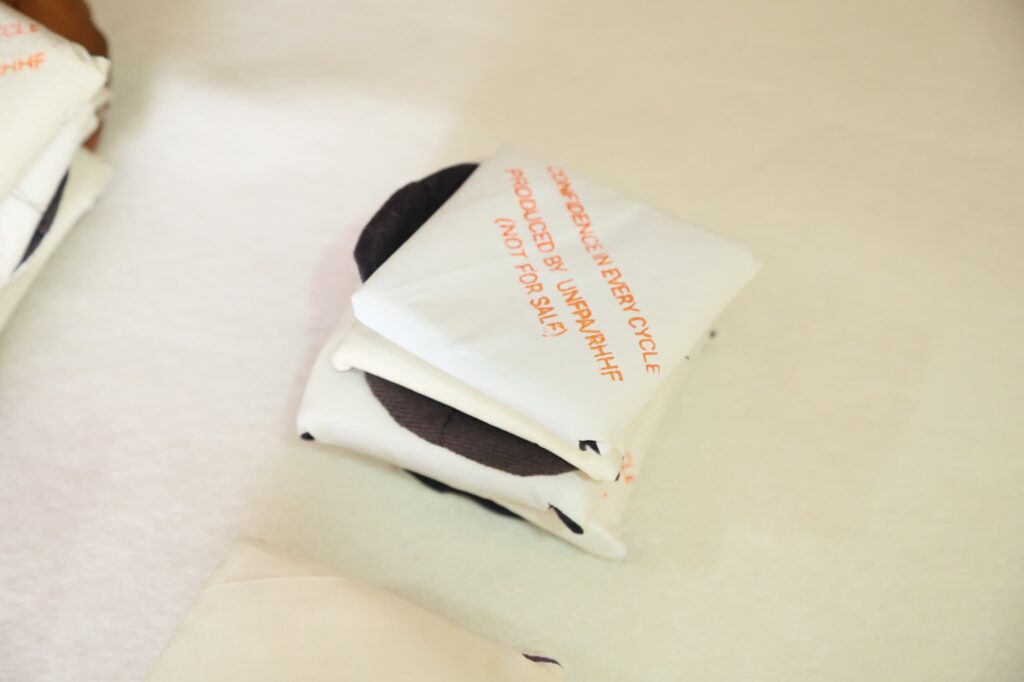
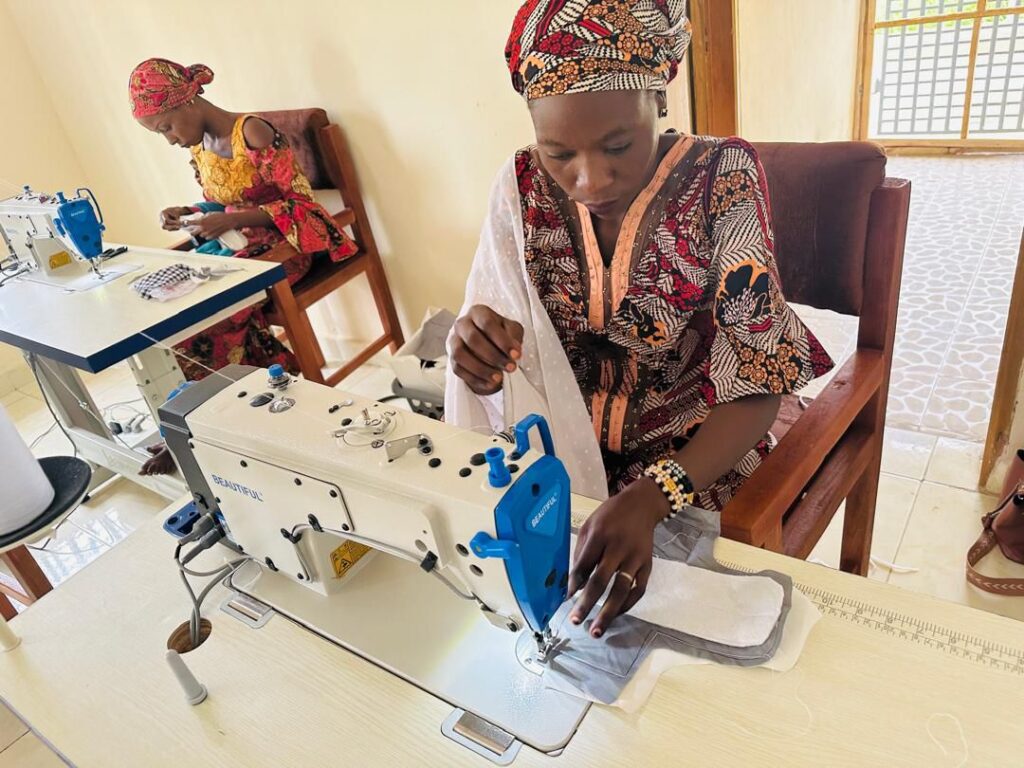
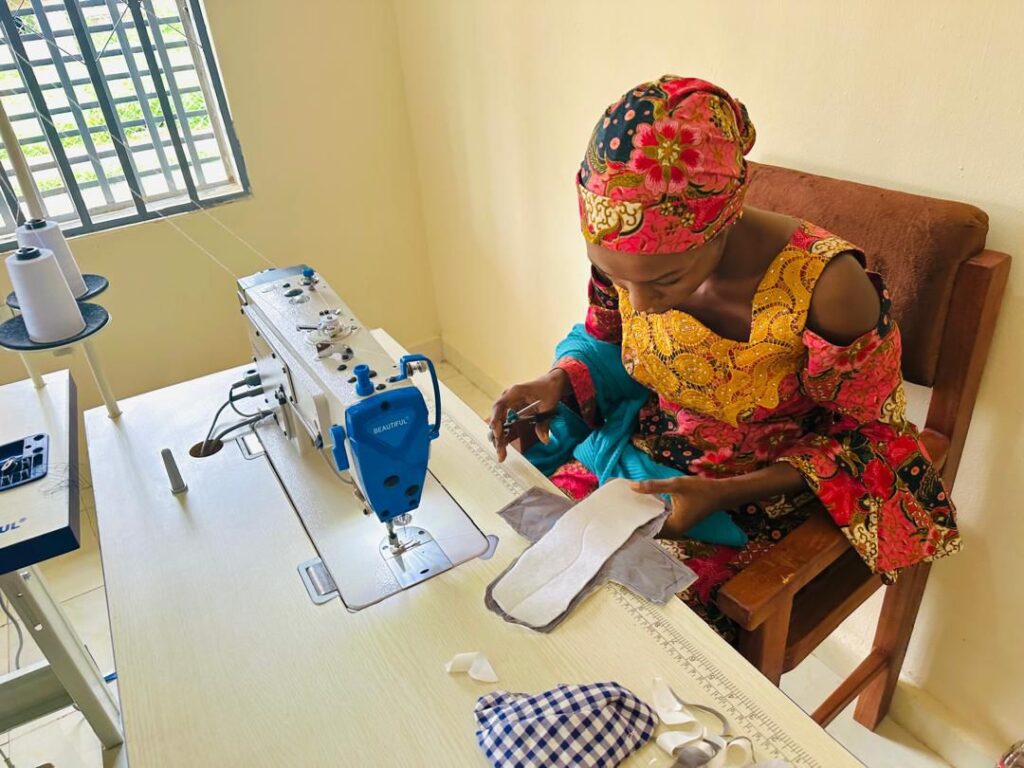

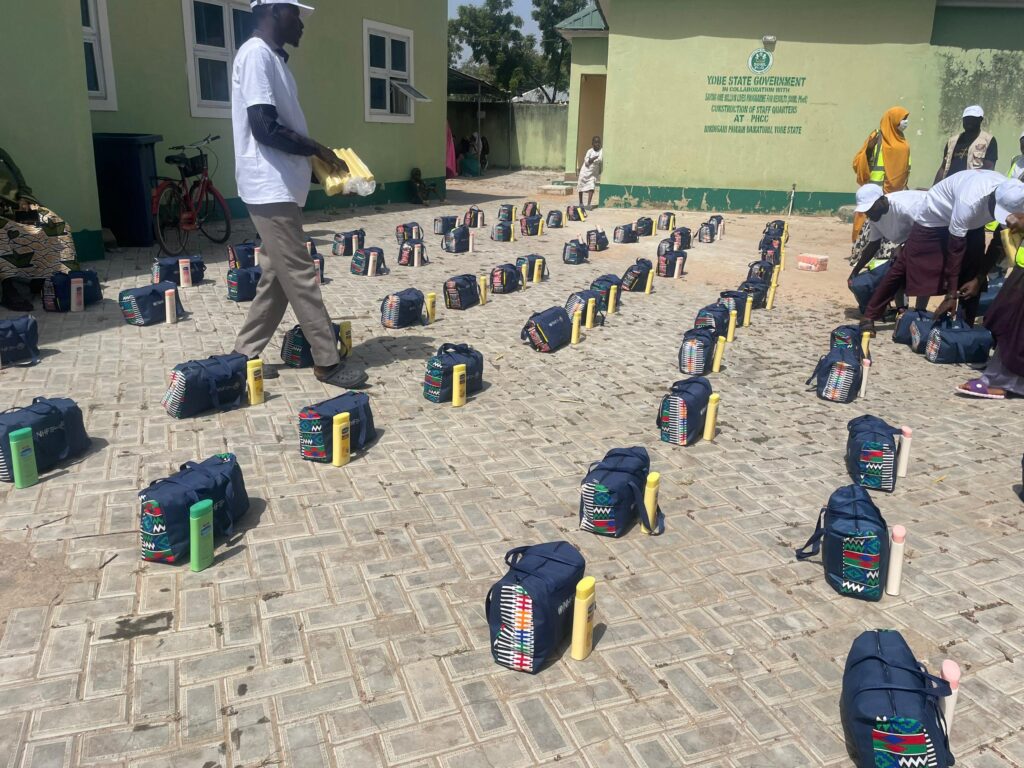
RHHF and UNFPA’s Partnership
Through funding and technical support from UNFPA, the Royal Heritage Health Foundation (RHHF) locally produces reusable menstrual pads and diapers, and assembles dignity kits for women and girls in need. This partnership supports both national and international commitments toward sustainable menstrual hygiene management (MHM), local production, and empowerment initiatives that promote gender equality, youth employment, and community resilience.
Aside from the production centers in Northeast Nigeria, Royal Heritage Health Foundation (RHHF) has successfully established a Reusable Pad and Diaper Production Centre in The Gambia, a milestone initiative that has empowered vulnerable women with hands-on training in the production of reusable sanitary pads and reusable diapers. This initiative has not only improved menstrual hygiene management but also created pathways to economic independence for women who were previously marginalized.
Building on this success, and through a strategic partnership with the United Nations Population Fund (UNFPA), RHHF now supplies reusable sanitary pads to Togo, further extending its impact across borders and strong commitment to providing sustainable, affordable, and dignity-preserving menstrual hygiene solutions to women and girls throughout West Africa.
Meeting the Unmet Demand
Despite increased awareness of menstrual hygiene, there remains a significant unmet demand for menstrual hygiene products and diapers across Nigeria and West Africa. Research shows that reusable pads currently account for only about 3% of the Nigerian market, despite strong consumer interest and growing demand.
Expanding Our Reach
RHHF seeks to scale production and distribution of reusable pads, diapers, and dignity kits across Nigeria and the West African sub-region. With greater funding and partnership, more women and girls can gain access to safe, affordable, and sustainable menstrual hygiene solutions, ensuring health, dignity, and empowerment for all.
There has been a constraint to the full production potential of established centres due to limited funding, this has slowed down the manufacture and distribution of these essential products. Yet, the success stories emerging from The Gambia and the BAY States in Nigeria are proof that this model works; it is locally driven, environmentally sustainable, and economically transformative.
RHHF seeks strategic collaboration and investment to scale up the production and distribution of reusable pads, reusable diapers, and dignity kits across Nigeria and the wider West African sub-region. Through this expansion, we aim to address the urgent need for accessible, affordable, and sustainable menstrual and childcare solutions for women and girls, particularly those living in low-income and crisis-affected communities.
An investment in this initiative is an investment in:
- Health: Reducing infections and menstrual-related illnesses through access to hygienic, eco-friendly products.
- Dignity: Ensuring that no girl misses school or a woman feels excluded because of her menstrual cycle.
- Empowerment: Equipping women with skills and livelihoods that promote self-reliance and community resilience.
- Sustainability: Reducing plastic waste and promoting circular economy practices through reusable, durable materials.
With greater funding and partnership, RHHF can replicate this impact-proven model across borders, transforming the menstrual health landscape, creating jobs for women, and protecting the environment. Together, we can ensure that every woman and girl in West Africa lives with dignity, confidence, and equal opportunity.
